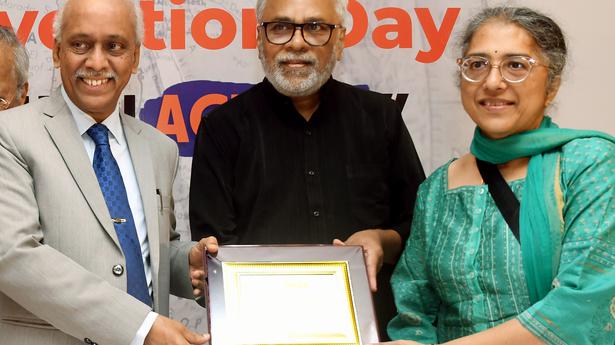
Decriminalising suicides | Courts haven’t understood scientific perspective but only legal, says SC Judge
The Hindu
Mental Healthcare Act has come up with some kind of a solution, says Justice V. Ramasubramanian
Responding to an appeal to repeal Section 309 of the Indian Penal Code (IPC) that criminalises attempt to commit suicide, Justice V. Ramasubramanian of the Supreme Court of India, said the Mental Healthcare Act, 2017, has come up with some kind of a solution but wondered if it has provided a solution in entirety.
Section 115 of the Act says that notwithstanding anything contained in Section 309 of IPC, any person who attempts to commit suicide shall be presumed, unless proved otherwise, to have severe stress and shall not be tried and punished under the said code, he said. “This can be taken, to some extent, as having repealed Section 309 of IPC. Though in the text, it still remains,” he said, addressing the World Suicide Prevention Day programme organised by Sneha, a non-governmental organisation (NGO) working in the area of suicide prevention, on Saturday.
He mentioned earlier that Section 309 of the IPC said an attempt to commit suicide was punishable with imprisonment, which may extend to one year or with fine or with both.
He elaborated on a Supreme Court judgment in 1994 that struck down Section 309 as unconstitutional, a judgment that overruled it in 1996 and recommendations of various Law Commissions to repeal and not to repeal the provision. “Courts, to some extent, are vacillating between one end and the other end because we have not understood the problem from a scientific perspective but we have analysed it only from a legal perspective,” he said.
Citing a report of United for Global Mental Health, he said criminalisation of suicide has four negative impacts on the society — it leads to suppression of data, results in not treating suicide as a public health issue, results in compounding of stigma and places people with mental health issues in places where such issues get aggravated.
Earlier, Lakshmi Vijayakumar, Sneha founder, said the Mental Healthcare Act had stated that nobody could be punished for attempting suicide, making Section 309 of IPC redundant. “But the fact is, it is still reportable. So, medical colleges and casualty departments still have to report cases. This means added stigma, added interference from the police and undercounting of attempted suicides,” she said, adding: “We hope the judiciary and government will understand this problem and repeal Section 309 of IPC.”
World Health Organisation’s (WHO) Chief Scientist Soumya Swaminathan, in a video message, called for a comprehensive multi-sectoral suicide prevention strategy. “Suicide prevention needs coordination and collaboration among multiple sectors,” she said, adding it was important to know the common methods of suicides to devise preventive strategies, including restricting access.

The girl, who was admitted to Aster CMI Hospital with alarming breathlessness and significant pallor, was diagnosed with Wegener’s Granulomatosis (now known as Granulomatosis with Polyangiitis or GPA), a rare autoimmune condition that causes spontaneous bleeding in the lungs, leading to acute respiratory failure.

ACB files case against IPS officer N. Sanjay in Andhra Pradesh. The official is accused of manipulating the tender processes for awarding contract for development and maintenance of AGNI-NOC portal, and conducting awareness meetings for SC/STs. It is alleged that the total value of properties stolen, or involved in the case is estimated at ₹1,75,86,600.









